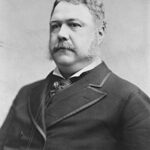The Arthur Rivers and Harbors Act Veto Decision
President Chester A. Arthur shocked Congress in August 1882 with his veto decision. The Rivers and Harbors Act allocated $18.7 million for critical infrastructure projects nationwide. Arthur branded the legislation as wasteful “pork barrel” spending despite overwhelming bipartisan support. 💰 The bill included funding for harbor improvements, river navigation, and coastal fortifications across multiple states.
Congressional Response and Public Outcry
House members immediately condemned Arthur’s unexpected veto as political obstruction. The legislation had passed with massive majorities in both chambers of Congress. ⚠️ Representatives argued that infrastructure investments would stimulate economic growth and job creation. Local newspapers across the country criticized the president’s decision as tone-deaf to regional needs.
Economic Context Behind the Controversy
The Arthur Rivers and Harbors Act veto occurred during a period of economic uncertainty. 📊 Many communities desperately needed improved transportation infrastructure to compete commercially. Arthur’s reform agenda prioritized government efficiency over popular spending programs. Critics viewed his stance as ideologically rigid and politically damaging to Republican electoral prospects.
Impact:
Immediate Political Consequences
Arthur’s veto triggered fierce congressional opposition and damaged his standing with Republican leaders. 🔥 House Republicans distanced themselves from the president’s decision before midterm elections. The veto reinforced perceptions of Arthur as an unelected president lacking popular mandate. Democratic opponents seized on the issue to portray Republicans as hostile to infrastructure development and job creation.
Regional Economic Effects
Communities expecting federal funding for harbor and river projects faced significant delays. 📉 Port cities struggled with inadequate facilities that hindered commercial shipping and trade. The veto particularly hurt Great Lakes and Mississippi River regions dependent on waterway transportation. Local businesses complained about lost opportunities for expansion and modernization that federal investment would have enabled.
Long-term Presidential Legacy Impact
The Rivers and Harbors Act controversy contributed to Arthur’s reputation as a politically tone-deaf leader. His reform credentials could not overcome perceptions of inflexibility on practical governance issues. 🌍 The veto highlighted tensions between idealistic government reform and pragmatic infrastructure needs. Arthur’s decision ultimately weakened his influence with Congress and eliminated any prospects for the 1884 Republican nomination.
